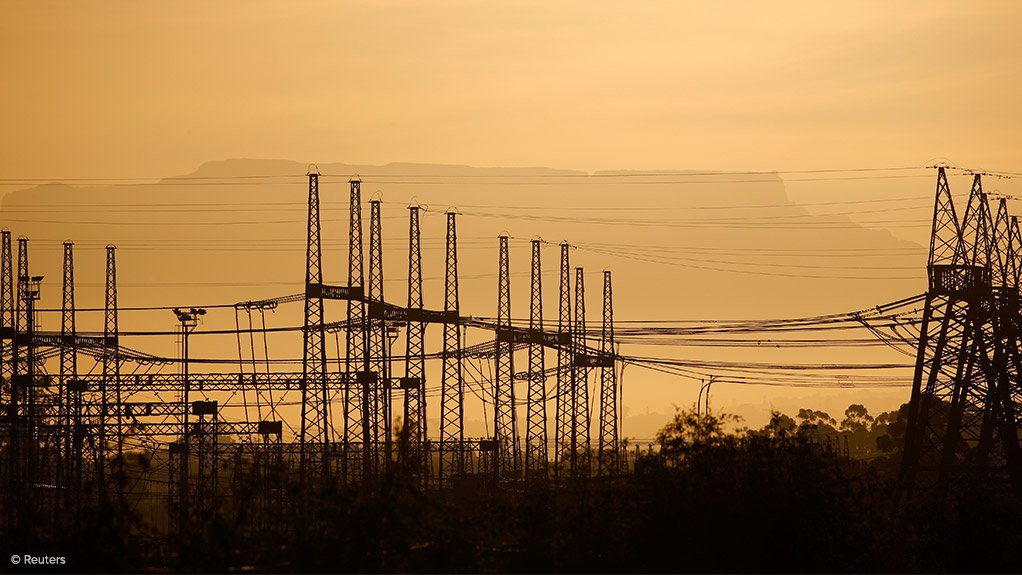Struggling power utility Eskom has confirmed that it has secured funding to pay for its diesel requirements for the remainder of the current financial year, which ends on March 31, but has not yet provided full details on the funding mechanism.
Speaking during a hastily convened media conference hosted to provide an update on the outlook for the system following a sustained period of Stage 5 and Stage 6 loadshedding, acting generation executive Thomas Conradie revealed that Eskom was operating its open-cycle gas turbines (OCGTs) extensively and would continue to do so for the rest of February and during March.
He also confirmed that loadshedding would be deescalated to Stage 4 from Friday morning, and to Stage 3 over the weekend.
In November, Eskom announced that it had more than exhausted its R6-billion budget for diesel for 2022/23, having spent about R12-billion.
By late January, however, it told lawmakers that it had spent R18-billion for the financial year-to-date and had concluded a funding mechanism with the National Treasury for the remainder of the financial year, which was likely to see its diesel spend exceed R22-billion.
Conradie was unable to provide details on the funding mechanism, but it is understood that the National Treasury is backing Eskom to raise between R4-billion and R5-billion from commercial banks to enable it to purchase the additional diesel it needs to reduce loadshedding and increase reserves until Eskom receives its budget in the new financial year.
In approving the recent hike of 18.65% for 2023/24, the National Energy Regulator of South Africa (Nersa) included a diesel budget of about R8.5-billion for the coming financial year against an application for about R17-billion.
Nersa did this on the basis of an assumed OCGT load factor of 6% against an Eskom request that it be given revenue to operate the OCGT plants at a load factor of 12%.
Conradie revealed a year-to-date load factor of 14% for the OCGT fleet, including the smaller Port Rex and Acacia generators. It is closer to 16%, however, if measured using only the two large OCGT plants at Ankerlig and Gourikwa.
Therefore, Eskom is already anticipating a R16-billion shortfall in diesel funding for the 2023/24 and 2024/25 financial years. The actual figure is dependent on final diesel prices and volumes, as well as whether or not it is able to recover the performance of its coal fleet.
The utility also moved to allay fears about securing fuel for its Koeberg nuclear power station in the Western Cape after the Agreement for Cooperation in Peaceful Uses of Nuclear Energy between the US and South Africa expired on December 4.
The expiry means that Westinghouse has lost its licence from the US Nuclear Regulatory Commission to export fuel-assembly components to Eskom’s Koeberg plant.
Chief nuclear officer Keith Featherstone said Eskom currently had two nuclear vendors: Westinghouse, which supplies fuel for Koeberg Unit 1 and Framatome, which is the supplier to Unit 2.
“The fuel from Framatome is obviously not impacted by this, because that comes from France, but the fuel from Westinghouse, which is manufactured in Sweden but comes with some components that are manufactured in the US and supplied to Sweden, is impacted.”
However, fuel for the current Unit 1 outage, which has been extended to include the delayed replacement of the steam generators, was on site and “ready to be loaded for the startup … which is scheduled for early June”.
The next Unit 1 refueling outage, scheduled for mid-2024, would be affected by the lapsing of the agreement and Eskom was, thus, considering various options, with the preferred option being finding a way for Westinghouse to supply the fuel.
However, mixing Framatome fuel and Westinghouse fuel in Unit 1 would also be considered.
The fuel for the next Unit 2 refueling, to take place during an extended shutdown later this year, was scheduled to arrive in South Africa from Framatome in either April or May.
Featherstone also confirmed that both containment buildings, required to house the components removed as part of the steam generator replacement programme, were complete and had been licensed by the National Nuclear Regulator.
Koeberg Unit 2’s three steam generators were meant to have been replaced as part of an extended outage initiated in January last year, but the project was deferred to October 2023 after it emerged that Eskom had failed to finalise the construction of the facilities required to house the old steam generators once removed.
EMAIL THIS ARTICLE SAVE THIS ARTICLE ARTICLE ENQUIRY
To subscribe email subscriptions@creamermedia.co.za or click here
To advertise email advertising@creamermedia.co.za or click here











